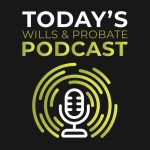
Why regular auditing is essential
North West law firm, Butcher & Barlow, recently discovered a member of staff working at their Bury office had been making improper transfers and withdrawals for a period of 11 years undetected. Seemingly with no motive for making the transfers, it became apparent from internal auditing procedures that in total 140 improper transfers and withdrawals had been made resulting in a loss of over £730,000 to the firm’s account ledgers in connection with dishonest cheques and payments.
John Philip Dunne, 62, of Bury was employed by the firm as Probate Manager from November 2004. Having access and control of the firm’s account ledgers and being responsible for the firm’s accounting procedures, he made payments to various firms throughout his employment with the firm.
During an investigation into the irregularities it became apparent that of the various transactions made by Dunne, some 16 payments were made to a care home where the client had not actually been staying and a further £40,000 was transferred from a client’s estate to the beneficiary of another, unrelated case. It also became evident that in order to rectify the shortages on those client ledgers, monies held for other unrelated matters were then used to make up the shortfall in order to balance accounts resulting in a constant cycle of transfers.
A spokeswoman for Butcher & Barlow said: “Over three years ago we identified that Mr J P Dunne had caused incorrect transactions to be recorded in our records. As a result of our internal audit procedures we discovered irregularities and immediately reported the matter to the SRA [Solicitors Regulation Authority] who fully investigated the circumstances.”
In November 2012 during a meeting with three of the firm’s partners, the SRA said Mr Dunne had admitted that, “payments had been made on the wrong files and explained that this was due to the pressure of work”.
The SRA confirmed that one of the matters which “exemplified” the way in which the withdrawals were made saw 21 payments made to five different care homes totalling over £111,000. Mr Dunne admitted these payments related to “care homes for other clients”.
During the Tribunal, the Probate Manager was accused by the SRA of making improper withdrawals, thus breaching the SRA Accounting Rules by failing to act in the best interests of the firm’s clients resulting in “compromising or impairing” a solicitor’s proper standard of work and the reputation of the profession, and behaving in a way likely to diminish public trust.
It was also found that that Mr Dunne did not have “any particular motive to make the incorrect transfers”, and that “he was working in a muddle or a mess and not checking files and the payments being made”.
In his defence, Dunne said he had a fairly limited understanding of the Solicitors Accounts Rules and did not receive any training from the firm at any stage during his employment.
The SRA Tribunal banned John Dunne being from being employed by a solicitors’ practice and he was ordered to pay costs in the sum of £5,500. Do you think this was a fair outcome?
Please let us know your view on this case by leaving a comment below.










